Ford and GM: Losing Focus
What's wrong with Ford and GM? In the face of shrinking demand for their core vehicles, The Blue Oval and The General are disgorging an endless stream of new products without rhyme or reason. This is the American market. It's supposed to be an American game. Yet time and again, Detroit's giants have misread the temper of the times, unleashing all-new products that flop, forcing them to scrap expensive models and start again. It's time for all the stopping and starting to stop.
Examples of Detroit's endless game of one-two-three red light are both bountiful and pitiful. For example, whatever happened to the bulbous Taurus? Where is America's favorite family sedan these days? It's been replaced by the Ford 500, a bland, underpowered vehicle whose customers are lined-up none deep. By the same token, the Ford Focus is a terrific little family car that could compete with the new Honda Fit, Toyota Yaris and Nissan Sentra. There's even an improved version in Europe, ready for federalization. But no, Dearborn has hung the Ford Focus out to dry, presumably in anticipation of its eventual unrelated replacement.
And what of the once-proud Lincoln brand's answer to the BMW 5-Series: the LS (Luxury Sport)? Despite the positive media buzz, despite selling over a quarter-million vehicles in six years, Ford let the model languish without major improvements– and then canned it as part of their "Way Forward" plan. In fact, there is not one single Lincoln you can look at and say, yes sir, that's a Lincoln! GM's Pontiac division is in the exact same position. Everything in their lineup is entirely new and connected to absolutely nothing in the company's past.
Detroit's corporate culture shoulders much of the blame for this automotive ADD. Long before John De Lorean hitched his wagon to the Pontiac GTO and Lee Iaccoca rode a Mustang to the top, Detroit's corporate culture rewarded execs tied to "winners" and punished anyone involved with "loser" vehicles. Improving an existing model, adding a few more percentage points to the sales charts, puts auto execs on the fast track to nowhere. Launching an exciting new hit guarantees a key to a corner office. While there's no profit in releasing an endless series of dogs, the suits are addicted to gambling their careers on quirky new models. SSR? XLR? Fusion? Freestyle? No thank you.
Contrast this with BMW's evolutionary approach. When The Roundel introduced its hideous 7-Series, complete with an unfathomable iDrive multi-media controller, even the normally subservient press slated the luxobarge. And yet BMW stood by the latest generation of its flagship and slowly, gradually, improved it. iDrive was simplified. The extreme sheetmetal was gently smoothed. At the same time, BMW maintained its program of regular engine upgrades, added features, continued a relentless, behind-the-scenes attack on quality control issues and kept on marketing the car. It's that kind of single-minded, single model dedication that keeps 7-Series sales growing, and protects BMW's from marketplace vagaries.
Clearly, the Germans "get it;" they appreciate the over-riding value of consistency. Consider the Mercedes-Benz S-Class. In the '80's, the W126 was Germany's answer to Rolls-Royce; 80% as grand and 100% more practical. There was no finer luxury sedan on the road. Subsequent decades saw an inverse developmental algorithm: as the S-Class evolved to new technological heights, it declined in quality and substance. Even so, by maintaining the model's lineage– selling the grandeur that was with the technology that is– dealerships can't keep the latest W221 S-Class long enough to sign the import papers.
Master chameleon Toyota understood the concept from the start. They knew that design evolution equals brand recognition, mechanical evolution equals customer satisfaction, and keeping a conquested customer is far cheaper and more profitable than getting a new one. In 1989, Lexus launched the LS400 as an upstart alternative to the Mercedes-Benz S-Class and BMW's 7-Series. Despite criticism for its bland design, despite German counterattack, Lexus never wavered from its commitment to its flagship. Today, most Americans consider the LS as cut from the same hide as its European competitors.
Ford and GM should face facts. They should 'realign' their corporate culture and stop chasing niches in search of "the next big thing": crossovers, convertible pickup trucks, pseudo-minivans, etc. They should plough all their resources into what they've got and get on with it. The truth is, there's no quick fix in the car business. There's only an endless pursuit of customer loyalty. The vast majority of customers want to be brand loyal. Unlike Detroit's ambitious execs, they want to chose once, choose wisely and stick with it. As long as Ford and GM continue to focus their energy on short-term product solutions, the Detroit monoliths are condemned to playing catch-up. It's a fruitless endeavor that ultimately produces nothing but mediocrity.
[Gunnar Heinrich publishes automobilesdeluxe.blogspot.com]
More by Gunnar Heinrich
Latest Car Reviews
Read moreLatest Product Reviews
Read moreRecent Comments
- Robert My guess is that it’s driven by cost, liability and responsibility. Cost, at least where I live, is not insignificant. Charge at the wrong time of day and it’s about $0.90 per kWh. Ouch! Meaning that charging would have to be tied back to the owner somehow. Responsibility being maintaining and managing the chargers and dealing with potential problems which they may not want to deal with.Personally, I wouldn’t touch an EV ability to homecharge.Proud owner of Mini Cooper SE, Volvo XC90 Recharge and a gas guzzling 2024 Mustang GT!
- ToolGuy "All this means that you, the car buyer, have likely at some point in your life bought a new or thoroughly redesigned model during its first model year and experienced problems." 👉️ No, actually, never, because I don't do that.
- ToolGuy Thankfully some of us have the TTAC Podcast to guide us.
- Pete Skimmel That all makes sense to me, find a way to pay for value received. Everyone wins.
- El scotto @jalop His maintenance costs are about right. Sorry about your alternative reality.



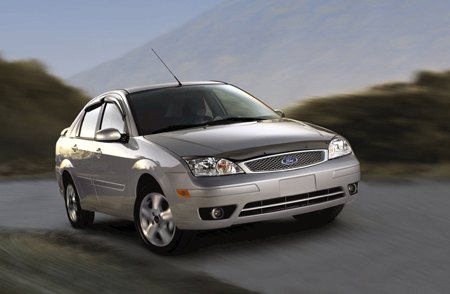















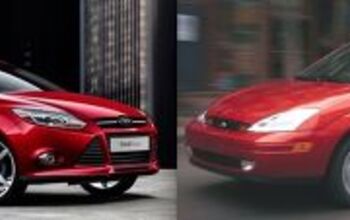
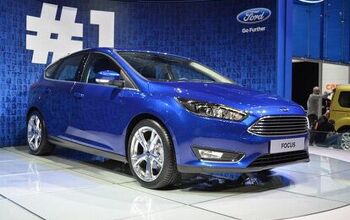
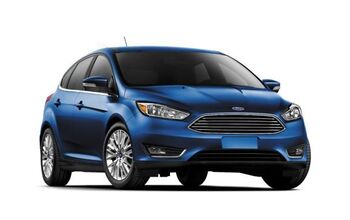
![Piston Slap: Feeling Bushed, Losing [Ford] Focus?](https://cdn-fastly.thetruthaboutcars.com/media/2022/06/29/8416784/piston-slap-feeling-bushed-losing-ford-focus.jpg?size=350x220)
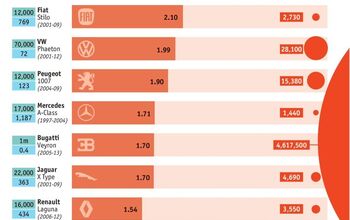










Comments
Join the conversation
17 year old article? Why bother publishing this?